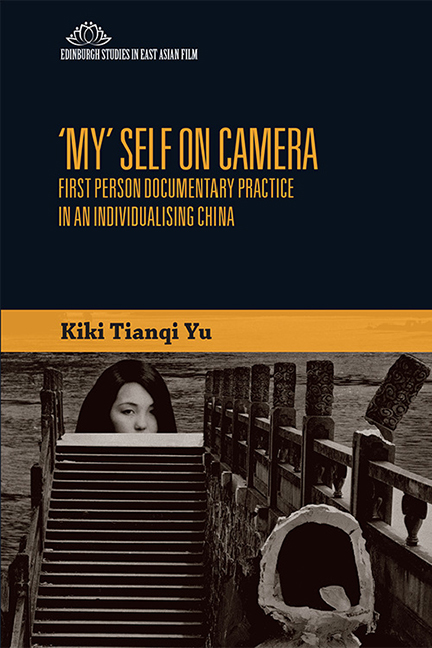Book contents
- Frontmatter
- Contents
- List of Figures
- List of Main Terms with Chinese Translations
- List of Names with Chinese Character Translations
- Acknowledgements
- Dedication
- Introduction: Action, Amateurness and the Changing Sense of the Individual Self
- 1 Female First Person Documentary Practice: Negotiating Gendered Expectations
- 2 Amateurness and an Inward Gaze at Home
- 3 Nostalgia toward Laojia: Old Home as an Imagined Past
- 4 First Person Action Documentary Practice: Longing for a More Politicised Space
- 5 The Problematic Public Self: Ethics, Camera and Language in Contestable Minjian Public Spaces
- 6 Camera Activism: Provocative Documentation, First Person Confrontation and Collective Force
- 7 Whose Self on Camera? Motives, Mistrust, Disputed Authenticities
- 8 From Fragile First Person Documentary Practice to Popular Online First Person Live Streaming Broadcast – Zhibo: Changing Intentions, Changing Individual Selves
- Filmography
- Bibliography
- Index
7 - Whose Self on Camera? Motives, Mistrust, Disputed Authenticities
Published online by Cambridge University Press: 10 November 2020
- Frontmatter
- Contents
- List of Figures
- List of Main Terms with Chinese Translations
- List of Names with Chinese Character Translations
- Acknowledgements
- Dedication
- Introduction: Action, Amateurness and the Changing Sense of the Individual Self
- 1 Female First Person Documentary Practice: Negotiating Gendered Expectations
- 2 Amateurness and an Inward Gaze at Home
- 3 Nostalgia toward Laojia: Old Home as an Imagined Past
- 4 First Person Action Documentary Practice: Longing for a More Politicised Space
- 5 The Problematic Public Self: Ethics, Camera and Language in Contestable Minjian Public Spaces
- 6 Camera Activism: Provocative Documentation, First Person Confrontation and Collective Force
- 7 Whose Self on Camera? Motives, Mistrust, Disputed Authenticities
- 8 From Fragile First Person Documentary Practice to Popular Online First Person Live Streaming Broadcast – Zhibo: Changing Intentions, Changing Individual Selves
- Filmography
- Bibliography
- Index
Summary
The significance of this project is not about whether they can make a film with a camera in their hands, but when we are given the freedom to speak for ourselves, how do we understand such freedom, and how to use it. When we all use this freedom and walk along, why do we backbite each other and pull each other out? It examines the idea of citizenship.
Wu Wenguang, author's interview 2010In this book, I have discussed first person films made by women at the turn of a new century, films made about the transition of filmmaker's ‘laojia’ (‘old home’), young generation filmmakers’ first person action documentary and the celebrity Ai Weiwei's camera activism. This chapter focuses on a group of individuals who I have not yet discussed elsewhere – socially less empowered, subaltern villagers – through a case study of the ‘China Villagers Documentary Project’. This project, started as a one-off in 2005, was originally part of an EU–China village governance training programme. Led by Chinese independent filmmaker Wu Wenguang and project co-ordinator Jian Yi, ten villagers across China were selected to each make a ten-minute short documentary on their own village with a portable amateur DV camera. After the first year, the project continued, financed by Wu's studio. Four of the village filmmakers, Wang Wei, Shao Yuzhen, Jia Zhitan and Zhang Huancai, continued their first person filmmaking and made documentaries annually from 2006 to 2009. Their films are titled ‘My Village 2006/2007/2008/2009’.
Since the completion of the first year of the project, the villagers’ films have been toured around festivals, universities and art centres in the USA, Europe and Hong Kong, and have attracted much scholarly attention. Most current studies emphasise how this project empowers the villagers to express themselves, and provides an authentic perspective on grassroots China through the villagers’ own lens that could not be obtained by professional filmmakers (Wang 2005; Huang 2016).
- Type
- Chapter
- Information
- My Self on CameraFirst Person Documentary Practice in an Individualising China, pp. 158 - 180Publisher: Edinburgh University PressPrint publication year: 2018



